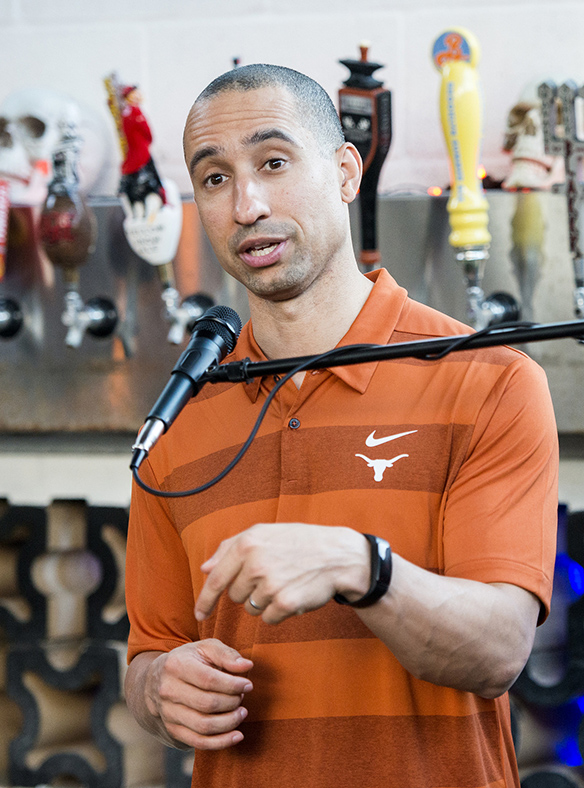Motivating Moments: Can you force players to be committed?
Commitment is the soul of teams everywhere. Without it, it’s impossible to find success, regardless of talent. And with it, teams that might lack the physical strengths of other programs find ways to win.
When thinking about commitment, we’re reminded of some insightful comments Winning Hoops Editorial Advisory Board member and Texas men’s basketball coach Shaka Smart made during a 2015 radio interview. Smart, who was then coaching at VCU, was asked his thoughts on comments then Florida coach Billy Donovan made about commitment following the suspension of a Gators player.
 In his comments, Donovan pondered whether you can force someone to be committed. Here is how Smart responded:
In his comments, Donovan pondered whether you can force someone to be committed. Here is how Smart responded:
“It’s a great point: Can you force someone to be committed? I don’t think you can.
We talk to our guys all the time about the difference between interest and commitment. When you’re interested in something, you do it when it’s convenient. When you’re committed to something, you do it all the time, even when you lost that feeling that you originally had when you made the original commitment.
But the problem with today’s society, especially our basketball culture, is kids grow up learning to be conditionally bought in. In other words, ‘If things are going well for me, then I will follow the plan and I will do what you ask me to do coach. If things are going well for me, then I’m going to have a good attitude. I’m going to be coachable. But if they’re not, I’m going to get off the page and I’m going to do what I want. It’s OK for me to violate team rules. It’s OK for me to not be coachable. (Or) it’s OK for me to take a bad attitude. It’s OK for me not to be a good teammate.’
And the reality is that it’s a disease that impacts the vast majority of teams. And what most fans don’t realize is this is the No. 1 thing that we fight as coaches every day. It’s a daily battle. People think it’s about pick-and-roll and dunking the ball and making jumpers. If our guys have a clear head for being committed to what goes into winning, then we’re going to win most of the time, unless we play a team that’s just that much better than us.
But when you see us struggle, it’s not because we didn’t work on free-throw shooting or work on our 3-point shot. It’s because maybe a guy got off the page, or maybe a couple guys did, and I try to tell our staff all the time it’s not about the scouting report. (And) it’s not about how we’re going to guard pick-and-roll. It’s about ‘does this guy have a clear mind?’
…
“It’s a systemic problem in our entire culture. … When you get to the higher levels of basketball, the reality is it’s a question of supply and demand. There’s a small supply of great players out there, great in quotes, whatever that means. There’s a huge demand for great players.
…
But if a guy can have success at this level but not do things necessarily the right way all the time, or not be a great teammate, eventually that’s going to catch you. No one has the level of talent, except for maybe the top 1 percent in the NBA, that they can be an absolute jerk, do things the wrong way, and still get away with it.”
Regardless of whether you agree, it’s an interesting conversation to have with players about the value of commitment. Catch Smart’s full interview archived by VCU’s Center for Sport Leadership.









